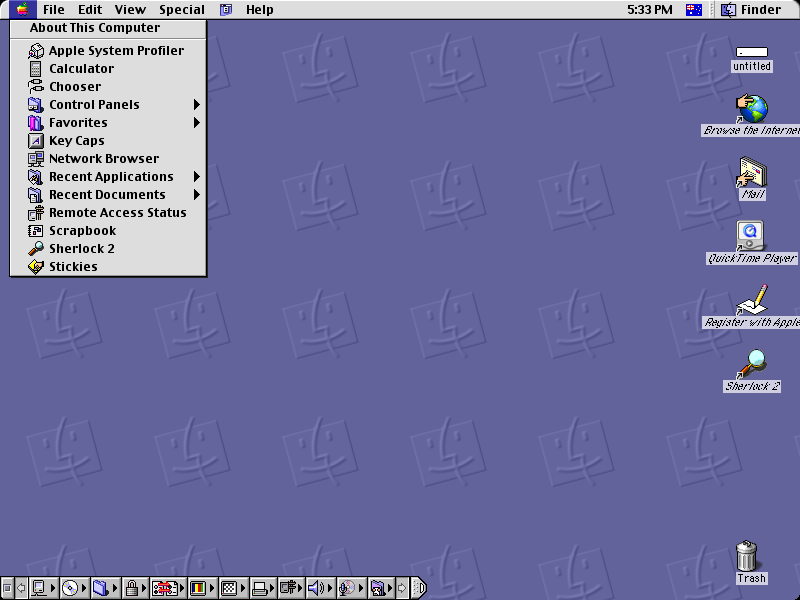Category: open source
You are viewing all posts from this category, beginning with the most recent.
How refreshing! It seems there is a new #OpenSource #Windows-compatible OS project called #Free95 on #GitHub. It is clearly in the very early stages of Alpha testing. The dev is open to contributors and would like to get Doom running. Naturally :) tech.slashdot.org/story/25/…
Have you heard the news? Fascistic othering is the new #American #Freedom… as in the freedom to forcefully eradicate the freedoms of those you deem sub-human. Life, Liberty, and the Pursuit of Happiness, as long as you’re #MAGA. #fascism #racism #oligarchy #opensource www.theverge.com/news/6128…
If you’ve been looking for a #cyberdeck, then you’ve got one more day to get in on the #Pilet #Kickstarter. They’ve already raised CA$1 million of their CA$20k goal… yeah. Popular is an understatement. #tech #raspberrypi #hardware www.kickstarter.com/projects/…
I can’t code myself out of a paper bag, but I know the value of the skill of #programming and of #opensource, so good on #Apple for open sourcing #Swift Build. Now can you open source Mac OS Classic? Tim?… TIM?! #tech #news 9to5mac.com/2025/02/0…
I just happened across this fascinating little #ESP32 based air quality monitoring device and am excited. It’s all open source and based on low cost, high availability components. While the campaign hasn’t started yet, I’d be surprised if it wasn’t affordable. #tech #climatechange #health www.crowdsupply.com/networked…
In a move designed to protect #Mastodon, founder Eugen Rochko is ceding control to be wholly owned by a non-profit organization to establish that “…the intent that Mastodon should not be owned or controlled by a single individual.” #tech #capitalism arstechnica.com/tech-poli…
The so-called #CyberDeck, inspired by cyberpunk culture, has become quite popular in recent years, facilitated by all manner of DIY computer components available for cheap. The upcoming Mecha Comet is one such device, and I think I’m in love! #tech #hardware #linux #opensource liliputing.com/mecha-com…
I’ve never seen a video as compelling as this one, and I’m not even an #Adobe user, at least not any more. But it’s a lot more than about ditching Adobe, but leaving #Windows and rediscovering our technological #agency through #Linux and #opensource. #tech www.youtube.com/watch
Now, THIS is very cool! I’ve been quite excited about the rise of so-called cyberdecks in the last few years, and this looks like one of the coolest ones I’ve ever seen. Powered by the nicely capable Raspberry Pi 5, the Pilet 5 (5" with integrated controls) and Pilet 7 (7" with a unique modular design) are full-on #handheld computers with a lovely #retro esthetic. The #Kickstarter campaign starts soon, as well. #tech #raspberrypi #rpi5 #cyberdeck liliputing.com/raspberry…
It’s time to open source MacOS 9: An Open Letter to Tim Cook

The now legendary Mac OS 9 desktop, a refinement of what came before and the influence for today’s macOS releases. Even to this day, untold thousands, likely tens of thousands, classic Mac OS machines are being used & loved, traded & developed for. [SOURCE: Wikimedia Commons]
Dear Tim,
How’ve you been? Good, I hope. I’ve been watching Apple’s events and your production quality is just top notch. Serious kudos to your production team. Gotta love those drone shots and slick transitions :) I’ve also been tracking the transition to Apple Silicon and I’ve been impressed. I got myself an M1 Mini that I’ve very pleased with, so much so I bought one for my wife.